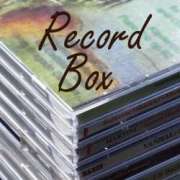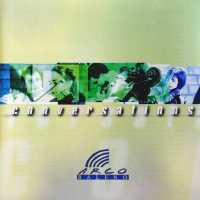|
FULL OF IDEAS
Chamber music amongst friends
and a CD of unusual interest
CD INFORMATION |

|
Nestling around Mozart's enchanting Flute Quartet in D K285 in this programme
are 20th century works that have required the sharp flick of a duster to
stir them from slumber. Should we hurriedly claim some knowledge of Roussel
and Bliss, it is unlikely that we know the first's Elpénor or
Bliss' early Conversations. We may as well accept that few of us
can have more than a sparse knowledge of a rapidly-disappearing century's
chamber music. The problem does not lie with composers but with the sheer
enormity of a century's contribution to a major category and the many divisions
within it. Additionally, and most significantly, supply usually outstrips
demand.
 I'll
declare now rather than later my immense respect for Arco Baleno's level
of perception and commitment to this disparate group of pieces. Each work
contains a seed that the group has collectively found worth resuscitation.
Mozart's Flute Quartet receives both delicacy and precision to reveal its
incredible sparkle. Roussel's capacity within his fanciful style of illustrating
a story does so here, but without need for the story. Boudewijn Buckinx,
a postmodernist, speaks of his art as requiring brevity, clarity and simplicity,
which is faithfully followed in both music and title: AB basically
indicates two sections, which are here unrelated. A small extract will demonstrate
some of the composer's music and the restrictions he adopts. [Click
for music.] I'll
declare now rather than later my immense respect for Arco Baleno's level
of perception and commitment to this disparate group of pieces. Each work
contains a seed that the group has collectively found worth resuscitation.
Mozart's Flute Quartet receives both delicacy and precision to reveal its
incredible sparkle. Roussel's capacity within his fanciful style of illustrating
a story does so here, but without need for the story. Boudewijn Buckinx,
a postmodernist, speaks of his art as requiring brevity, clarity and simplicity,
which is faithfully followed in both music and title: AB basically
indicates two sections, which are here unrelated. A small extract will demonstrate
some of the composer's music and the restrictions he adopts. [Click
for music.]
The Belgian Joseph Jongen maintains a link with today mostly through
his organ music, which is far removed from his Serenade tendre, a
gentle, almost sensuous piece of writing. Megane is from a composer
striding with ease across the 'divides' and providing three pieces that
fascinate even more when you tackle the programme note. Jan Huylebroeck
is full of ideas. [Click for music.]
Arthur Bliss' composing career started experimentally and gradually veered
towards a somewhat conformist style after his appointment as Master of the
Queen's Music in 1953. Conversations from 1920 represents his period
of flirting with ideas from the continent, and following up the excitement
that stemmed from Stravinsky's post-Rite period. The last
movement of this suite, In the Tube at Oxford Circus, cynically begs
the question of development since 1920: which has moved the fastest, London
Transport or Music? [Click for music.]
Copyright © Basil Ramsey, October
6th 1999
 << Music &
Vision homepage Banse sings Schumann >>
<< Music &
Vision homepage Banse sings Schumann >>
 |
To listen to the aural illustrations in this review,
you may need to download RealNetworks' realplayer G2. |
Record Box is published every Wednesday.
|